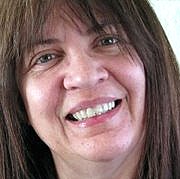For years, many women who have had breast cancer made a habit of avoiding soy products like soy milk, tofu, edamame or miso soup. Animal studies had shown that soy mimics estrogen, which led to the fear that it would enable a recurrence of breast cancer.
But a study of women, published in today’s Journal of the American Medical Association (JAMA), comes to the opposite conclusion. Dr. Xiao Ou Shu, a professor of medicine at Vanderbilt University, and her colleagues analyzed data from the Shanghai Breast Cancer Survival Study of 5,042 women in China. The breast cancer survivors were ages 20 to 75 and had been studied for an average of four years.
The research showed that the more soy a woman ate, the lower the chances of her breast cancer returning. Women who ate the most soy had a 29% lower risk of death and a 32% lower risk of breast cancer recurrence during the time of the studythan did the women who ate the least soy .
"The key take-home message from our study is that moderate amount of soy food intake is safe and may reduce risk of mortality and recurrence among women with breast cancer," Shu told the Reuters Health news service.
"Some doctors have advised women not to eat soy foods," Shu told the Los Angeles Times. “But another school of physicians think it's safe. So it has been controversial. Our findings are important because, nowadays, it's very difficult to avoid soy exposure. Soy flour and soy protein has been added to many foods in this country. Women may consume it and not even know it."
From USA Today:
“On the plus side, soy is a good source of protein with little fat and no cholesterol, which makes it popular with vegetarians, dieters and people who can't handle milk. Women in regions with high soy consumption, such as Asia, tend to have lower rates of breast cancer, Shu says. But Asian women differ in many ways from Americans, especially in their weight, so scientists say soy can't get all the credit.
“Studying soy in America has been difficult, Shu says, because women here eat little of it. About 28% of Americans ate soy at least once a week in 2003, her study says.
“That's why Shu decided to study soy in more than 5,000 breast cancer survivors in China, where soy is a staple.
“She divided women into four groups, based on how much soy they ate. Women with low soy levels consumed an average of about half a cup of soy milk a day, while the high-soy group had about three cups a day, Shu says.
“After four years, 7.4% of those who ate the most soy had died, compared with 10.3% of those who ate the least soy, according to her study.
“These results suggest that it's probably safe for breast cancer survivors and other women to have one or two servings of soy foods a day, says Walter Willett, chairman of the nutrition department at the Harvard School of Public Health. But he cautions against women taking large doses of genistein pills or other soy supplements, which are unproven.”
If you are interested in reading the current stance on soy, written by Marisa Weiss, M.D., for breastcancer.org, go here:
http://www.breastcancer.org/risk/everyone/question/soy.jsp
The full text of the study from JAMA (membership not needed):
http://jama.ama-assn.org/cgi/content/full/302/22/2437?home
Today’s story, from HealthNews:
https://www.empowher.com/news/2009/12/08/soy-beneficial-breast-cancer-survivors-study
From Reuters:
http://abcnews.go.com/Health/wireStory?id=9284308
The Los Angeles Times story:
http://www.latimes.com/news/nationworld/nation/la-sci-soy9-2009dec09,0,6546847.story
The USA Today story:
http://www.usatoday.com/news/health/2009-12-09-soy09_st_N.htm






Add a CommentComments
There are no comments yet. Be the first one and get the conversation started!